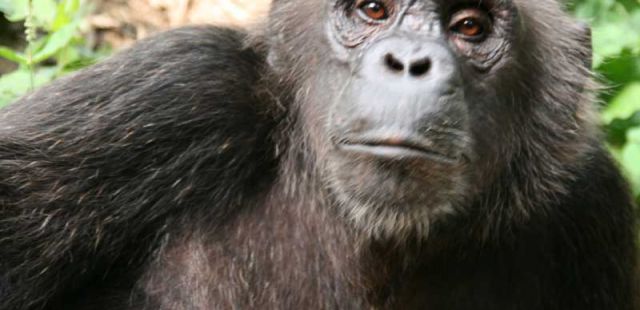Threats to Survival
Chimpanzee populations live under the same kind of human pressure that are most of the animals living in the African forest do; they are hunted for meat, and are also losing their forest home to deforestation. The chimpanzee is considered endangered by the IUCN Red List of Threatened species. Hunting is the most immediate threat to this primate. Because of their size, they are typically hunted with guns and the amount of meat on a chimp can bring a hunter a lot of money on the market. The commercialization of the trade in bushmeat also means that some chimp meat makes its way to Europe, the U.S., and other places in the developed world. Chimpanzees are at a particularly high risk from the live trade in wildlife - infants can be sold for pets and often end up as part of an international smuggling network which provides chimps to private owners, roadside zoos and other establishments, and the entertainment industry (please read Tengwood.org's illegal trade page to learn about ours and other's investigative work on this important subject). Loss of habitat is also reducing population sizes. The deforestation is due to commercial logging and subsistence farming, which transforms the chimp's forest habitat into one where they may have difficulty in finding enough food and avoiding hunters.
If action is not taken now, the chimpanzee could go extinct in the next 10-20 years. The Nigeria-Cameroon chimp, with its small range, found in an area where the human population is growing exponentially, will be one of the first of the great apes to go.
























